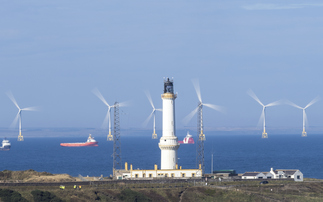Sixteen energy and clean tech firms pledge to remove regulatory, financial, and technical barriers to support 1.5TW of additional renewable capacity
Sixteen of the world's leading energy and technology firms - including EDF, EDP, Schneider Electric and Vestas - have launched a joint "scaling up renewables" action plan to support the deployment of 1.5TW of extra capacity by 2025.
The firms yesterday pledged to remove barriers to large-scale deployment of clean energy, in an effort to clear the way for new projects that will help reduce energy sector greenhouse gas emissions and limit dangerous global warming.
The initiative is part of the World Business Council for Sustainable Development's Low Carbon Technology Partnership Initiative (WBCSD LCTPi), which gathers businesses to accelerate the development and deployment of large scale clean technology projects.
Specific actions include: improving connections between renewables and the grid; encouraging green bond finance by making projects more transparent and reducing risk; working with corporate renewable energy buyers to boost clean energy procurement; and speeding the development of low-carbon micro grids to promote clean energy in remote areas.
There is currently about 1.94TW of renewable capacity globally. To meet the International Energy Agency's projections for a 2C pathway, this must grow to 3.49TW in 2025 and 4.53TW in 2030. Scaling clean energy deployment to this level could generate more than $3.5tr worth of investment and up to 15 million jobs, according to WBCSD.
Peter Bakker, president of WBCSD, said accelerating the deployment of renewable energy is essential to reaching the 2C pathway. "Today's announcement on renewables shows that businesses around the world are taking concrete action to combat climate change as they see the multiple integrated benefits of investing in a low carbon world," he said in a statement.
The announcement forms the final action plan from the WBCSD LCTPi renewable energy working group, one of nine industry-led groups developing low-carbon development plans for specific industry sectors ahead of the upcoming Paris climate summit.
This article is part of BusinessGreen's Road to Paris hub, hosted in association with PwC.








